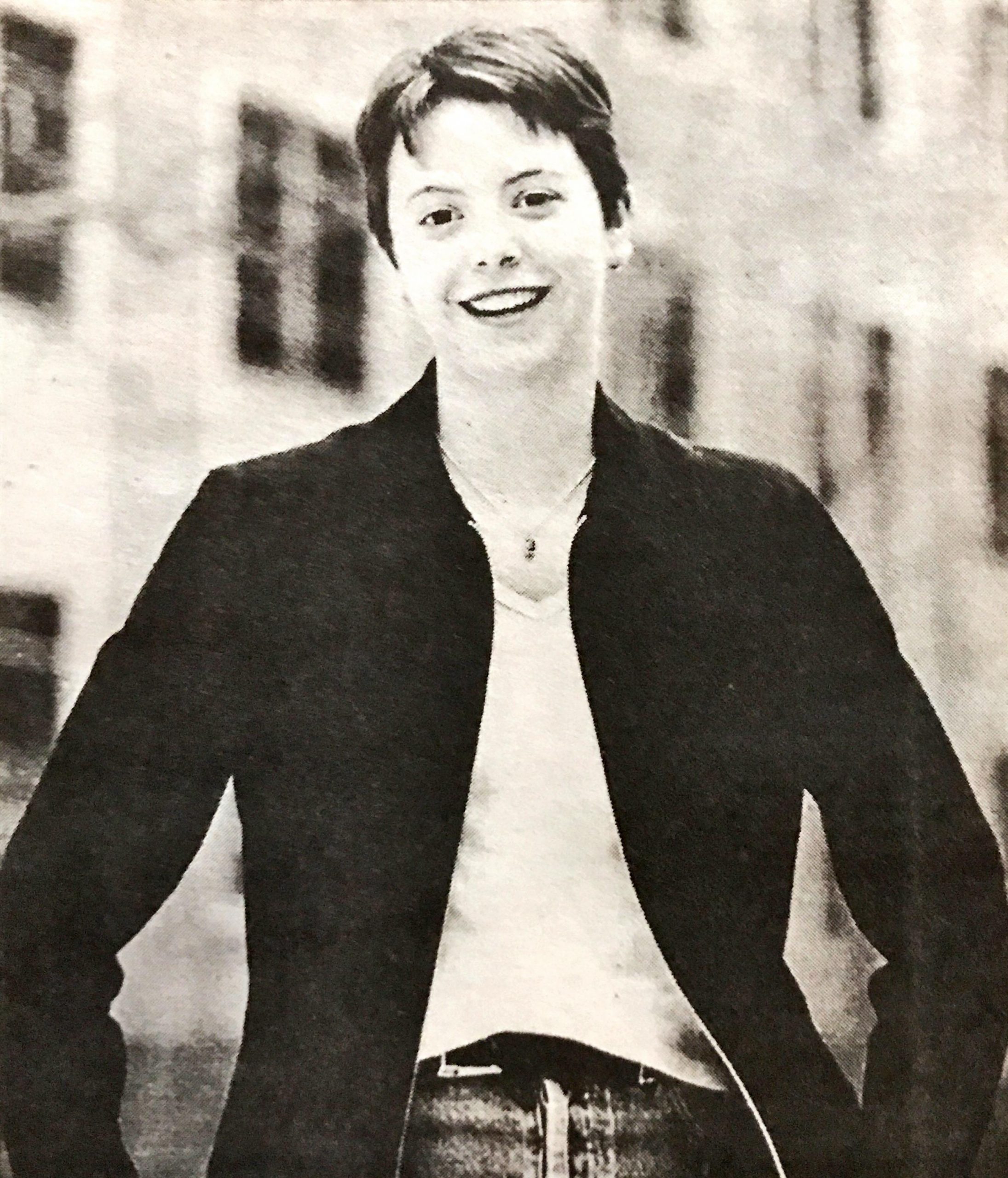By Adam Elsner
Ontario Health Minister Elizabeth Witiner probably never knew what hit her during a visit to Ryerson last March.
One moment she was standing at a lectern next to president Claude Lajeunesse, announcing a $20-million boost to Ontario’s health-care system in a classroom packed with journalists, nursing students and faculty.
The next moment she was under siege from RyeSAC v.p. Education and president-elect Erin George. All cameras turned to capture George as she verbally attacked Witmer for announcing the investment after years of provincial cuts to nursing jobs. “How can you justify the hypocrisy of your government, using nursing students for your pre election photo op?” she shouted, her face turning red as she broke down in tears.
Members of all the major Toronto newspapers, television and radio stations later surrounded George, eager to get an anti-Tory sound bite from a passionate student. She had successfully turned a simple photo op for the provincial government into a media disaster.
This was a sign of things to come.
Though she came to Ryerson five years ago aspiring to be a journalist, George has become a crusader for social justice. Whether it’s handing out leaflets to rally support for Access 2000 campaign, standing on a picket line with striking Molson beer-plant workers, or trashing the Progressive Conservatives on national television, George has become well known in provincial education circles. She’s been an outspoken advocate of students’ right to affordable education.
“Some people have termed it that I’m the most openly left [RyeSAC] president,” she says. Then she pauses. “I do bring a social justice aspect to everything I do.”
Looking around her RyeSAC office, it’s not difficult to see where George’s passions lie. The room is littered with Canadian Federation of Students posters, anti-Mike Harris signs and stickers with messages such as “fuck work.” She talks excitedly of social justice, of solidarity and protesting Wednesday’s student strike, an event two years in the making, could prove to be the pinnacle of her political career at Ryerson.
George is counting on students to show their support, as they did during the student day of action in January, 1998, when protesters occupied CIBC’s headquarters at King and Bay Streets to draw attention to mounting student debt loads. “It was a battle we won two years ago by getting students involved,” she says. “We need to do that all again.”
George came to Ryerson from her hometown of Chatham, Ont., a small city west of London with a population of 43,500. She chose the school because she wanted to study journalism and everyone at the Chatham Daily News, where she was working on a study placement, recommended she come here. “I had two choices: Ryerson or Carleton,” she says. “All the journalists under 35 had graduated from Ryerson.”
It wasn’t until her second year that George’s passion for social activism was sparked. She was covering a town hall meeting between students and president Lajeunesse for a broadcast journalism class. Working three jobs to support herself, George says she was struggling to get by. “I didn’t realize there was a reason for that.”
But as she heard other students get up and tell the president about their financial troubles, she stepped away from the story and gave her own opinion. “It was probably the first time that I spoke about something I believed in,” she says. “I was just Joe student going up to a microphone in a room with 60 students, talking about how poor I was.”
Her emotions overcame her, and RyeSAC’s president at the time, Victoria Bowman, took her aside to tell her about services that could help her. Bowman also recommended she run for a vacant spot on RyeSAC’s board of directors.
“My first response was, ‘Lady you gotta be kidding me,’” George says. “But it was the first real invitation I had to participate at Ryerson.” She ran and won the position of faculty of applied arts representative.
In the fall of 1997, she became RyeSAC’s women’s issues commissioner. “That’s where I really started to get involved.”
That year, she engineered the move of the Women’s Centre from a cramped office in Jorgenson Hall to a larger one nearby, booting out the Games Club in the process. “It was a little controversial,” she says. “But it was the best decision.”
The next year, George ran for and won the job of v.p. education. David Steele, president at the time and now RyeSAC’s co-ordinator of special events and programming, was more internally focused and dealt with issues such as the administration’s exclusive vending deal with Coca-Cola and planning for the student centre. George had “external passions,” waging battles against tuition hikes and government spending cuts. “That was a very fortunate dynamic,” Steele says.
George became RyeSAC president in the spring after a hard-fought campaign against Elliot Salmons, a fourth-year theatre technical production student. During the campaign she took every opportunity to talk voters, even at pub nights at the Ram in the Rye.
Making her way through the crowds of people on those Thursday nights, George handed out leaflets and made her platform pitch to anyone who would hear her out. Her top priorities were, not surprisingly, freezing tuition fees and increasing financial aid to students. When she wasn’t mingling, George sat by herself at a table in the corner, writing in a notebook and furiously smoking.
“I think I handed out about 4,000 leaflets during that campaign,” she says. “It was the longest and hardest two-and-a-half weeks of my life.”
All the work paid off—she received 57.7 per cent of the ballot, beating Salmons by 158 votes.
In her time in the president’s seat, George has regularly put in 50 to 60 hours a week, working all hours of the night and on weekends. This school year, the council has continued to work with administration to build a student-run campus centre, introduced a dental plan and given students access to free legal services.
Her tireless efforts to bring student issues to the forefront of Ryerson’s administrative boards and committees has strained relations between RyeSAC and administration. When the subject was brought up at RyeSAC election debate last week, George who was in the audience, shook her head. “Lies, lies,” she mumbled to herself.
“I always get along with administration. That’s part of my job.”
But those who have worked with her say sometimes George lets her passion get in the way of her job. Animosity built up last semester over the firing of harassment office manager Wendy Roberts. George was the lone voice on Ryerson’s board of governors speaking on behalf of a coalition of student groups and union locals who demanded to know why Roberts was fired.
Rob Stagg,a history professor who has worked with George on the board of governors, the student centre committee and other projects, says she sometimes gets so wrapped up in issues that people focus on her style rather than substance.
“She has been effective at times, and at others weakened her position by her unwillingness to wait for people to catch up with her,” Stagg says. “She’s very good at argument. I’ve not seen many people better.”
Linda Grayson, Ryerson’s v.p. administration, will only say George “has brought her message [to the administration] effectively.” The president decline an interview. “It is inappropriate for this office to comment on elected leaders of campus organizations,” his assistant wrote in an E-mail.
At the end of this school year, George will leave Ryerson behind for her new positions as chair of the Canadian Federation of Students-Ontario.This will give her the opportunity to continue fighting for her causes but on a much larger scale, representing 185,000 students across the province.
When her one-year-term with CFS-O is up, George isn’t sure what she’ll do. She’s thinking about returning to Ryerson, where she needs a couple of more courses to graduate. “I haven’t done a resume since 1995,” she says. “I’m sure my mother would like me to finish my degree.”










Leave a Reply